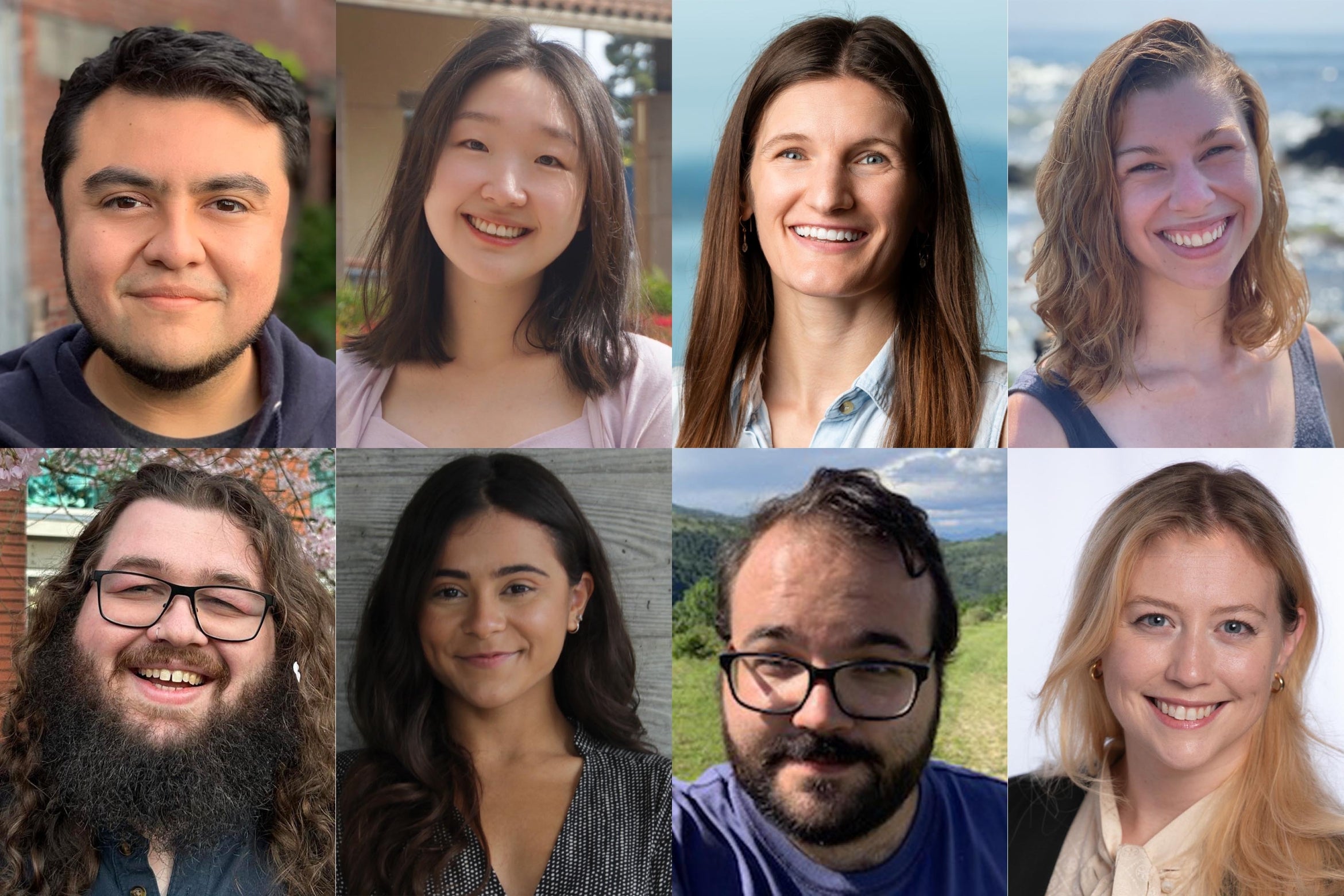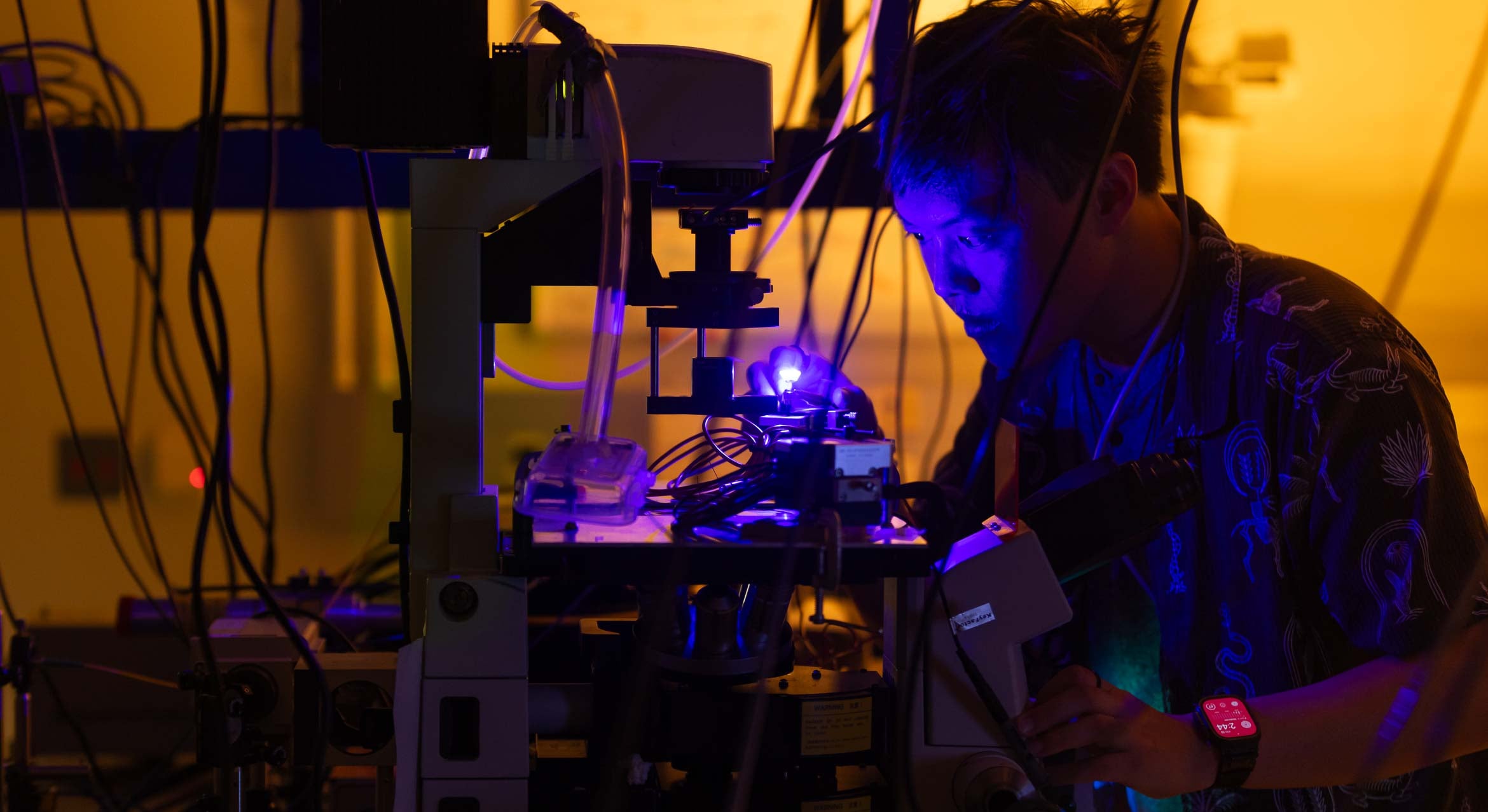Top mentors honored with annual awards

Whether they’re researching neuroscience, ancient languages — or beyond — a good mentor can make all the difference to a student’s success.
Graduate student mentors are often repaying the tutelage they received as mentees themselves. Annually, the UC Santa Barbara Graduate Division recognizes a handful of the brightest mentors with an award to recognize their work in helping to bring up the next generation of college graduates.
Selected by a subcommittee of the Academic Senate Graduate Council, this year eight recipients of the Fiona and Michael Goodchild and Carol Genetti Graduate Mentoring Awards will receive awards of $1,000.
“The stories of our mentoring award winners emphasize how the mentoring they received as undergraduates made a difference in their own success, and how that inspired them to give forward,” said Leila J. Rupp, Interim Anne and Michael Towbes Graduate Dean. “Lifting as they climb, they impart important skills while gaining experience that enhances their own careers. It is the collaboration of undergraduates, graduate students and faculty members that makes possible the exciting and innovative research that takes place across campus.”
Anna Theogarajan, assistant professional development director, said graduate student mentors play a pivotal role in shaping the academic and professional trajectories of their undergraduate mentees. “Receiving a mentorship award is a profound acknowledgment of this critical contribution, highlighting the lasting impact mentors have on their mentees’ journeys and affirming the importance of mentorship in the academic community.”
Meet the mentors
Linguistics students Guillem Belmar Viernes and Jordan Douglas-Tavani and communication students Kyungin Kim and Kylie Woodman received the Carol Genetti Graduate Mentoring Award, for students in the Humanities and Fine Arts and Social Sciences Divisions of the College of Letters and Science and in the Gevirtz Graduate School of Education.
Viernes researches the documentation of Indigenous and minoritized languages, Indigenous diaspora communities, language revitalization, language and media. “This award acknowledged the hard work I put into creating a safe learning environment for my RAs in which we would also discuss professional and academic topics beyond our projects,” he said.
Douglas-Tavani hopes to continue pushing the field of linguistics in the realm of story-based, archival language description and revitalization. “More than anything though, the award serves as a badge of honor and a reminder of the role that I wish to have for the rest of my life,” he said.
Kim, a member of the Communication & Empowerment Collaborative, researches the diverse needs of different international, migratory populations. “While academia can often feel exclusive, my students helped me feel accepted and welcomed in every classroom and research meeting I walked into,” she said. “I am grateful to the teachers in my life who have shown me first-hand what it means to be a patient, empathetic and supportive mentor.”
Woodman’s research focuses on how adolescents and children develop in a media-saturated environment. “It’s wonderful to see undergraduates experiment and find their passions, whether it’s running an fMRI study, modeling brains for 3D printing or presenting research at conferences,” she said.
The Fiona and Michael Goodchild Graduate Mentoring Award, is open to students in the College of Engineering; Mathematical, Life, and Physical Sciences Division of the College of Letters and Science; and the Bren School of Environmental Science and Management, went to Caitlin Nordheim (ecology, evolution & marine biology), Leo Jimenez Chavez, (psychological & brain sciences), Gabriela Vallalpando Torres (mechanical engineering) and Justine Albers (marine science).
Nordheim credited her own undergraduate experience as a mentee in making her a better mentor. “My own journey as an undergraduate researcher was transformative, helping me build confidence and a sense of belonging in the scientific community,” she said. “I aim to emulate my previous mentors and foster a similar environment and opportunities for my mentees as a graduate student at UCSB.” Nordheim’s varied research allows her to train researchers in different techniques and to give mentees hands-on experience.
Jimenez Chavez is a researcher in the Neuroscience Research Institute under the guidance of Karen Szumlinski. “Knowledge and support from others were really important in my own academic journey, so it’s been fulfilling to switch roles and offer this same support to other students,” he said.
For Villalpando Torres, mentoring others gave her more confidence in her academic career. “As a first-generation student,” she said, “I attribute much of my success to the incredible mentors who guided me and inspired my own commitment to mentoring. Since applying to grad school, I have aimed to provide the same high-caliber mentorship to undergraduates, helping them achieve significant milestones such as presenting at a research conference.”
Albers’ research combines genomics, laboratory experiments and measurements made at sea to understand how these microbes adapt to environmental stressors like nutrient limitation and low oxygen. “Mentorship quality can deeply impact student outcomes, so I strive to educate myself on mentorship best practices, encourage mentees to develop independence and enthusiasm for science, and facilitate achievement of their professional goals beyond our time together in the lab,” she said.



